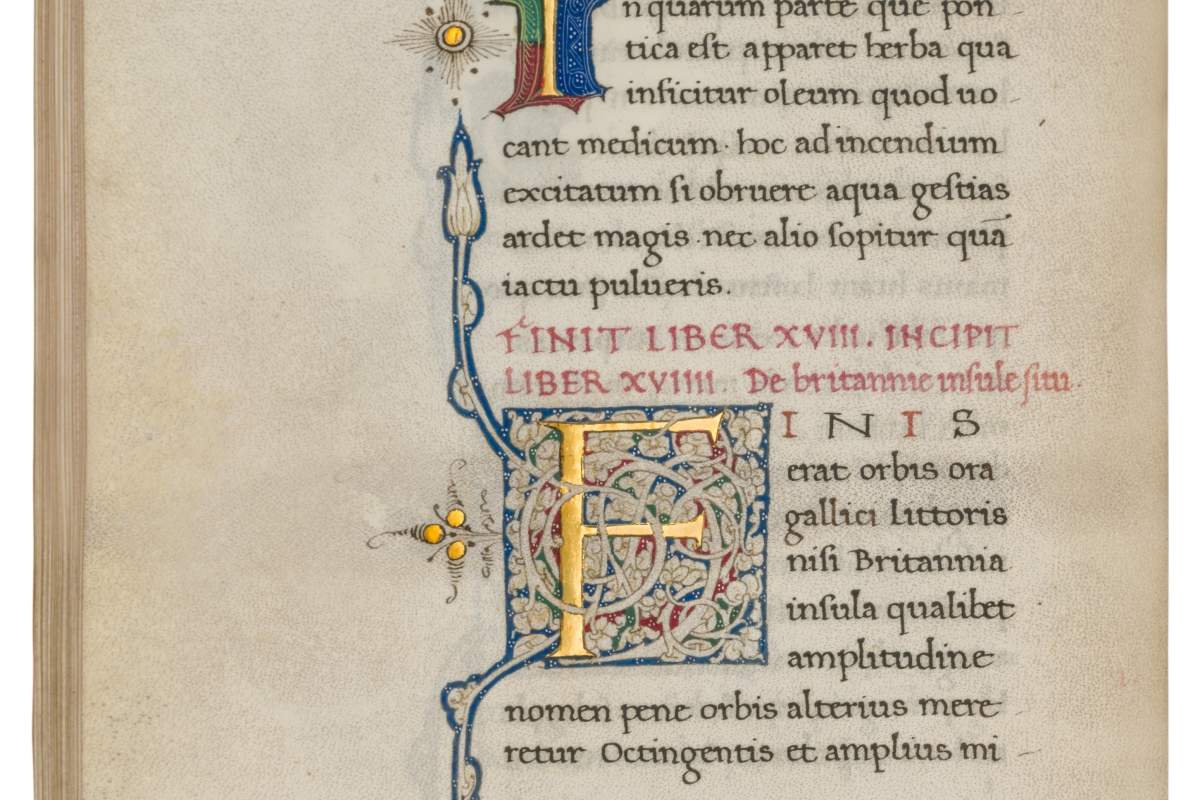
While strict rules on social distancing apply, not being able to travel may hurt bibliophiles less than others because they know how to travel through books. Sitting in a comfortable chair with a beloved book in our hands, we are transported into off-road adventures. Our medieval manuscripts can spirit us away in an instant. This is the second blog post on Dr. Jörn Günther Rare Books' fine manuscript of the Collectanea rerum mirabilium or Polyhistor by Solinus, a 3rd century Roman geographer. With this book as our point of departure, we embark on exciting journeys and come home again.
Although the Roman author announces that he will begin “with the ‘head’ of the world, that is, the city of Rome”, he actually opens his book with what seem to be various faits divers, thus informing his readers of concepts such as speed, space, vision, physical, and cognitive skills. For example: “When Polymestor, a Milesian boy, had been directed by his mother to feed the goats, he chased a hare for sport and caught it. Because of this, he was immediately induced by the leader of his people to compete in the 46th Olympiad. He was victor in the race, and won the crown...”. [NB: Currently, the Olympic record for the marathon stands at 2:06:32 hours]. Solinus offers another utterly fantastic record, which I cannot omit here: “Cicero reports that the whole Iliad was so finely written on vellum it could be enclosed within the shell of a nut." Yes, Solinus is fun to read.
Following the introductory paragraphs, the Roman geographer writes: “Now, in order to return to my resolve, I must steer my pen towards the commemoration of places.” Travelling onwards, his pen arrives at the edge of the world (in our manuscript, Book 18; in the Latin/English edition, chapter 22): “The Gallic [Gaul, France] sea-coast used to be the border of the world. But the island of Britannia, from its size, almost merits the name of another world, for it is 800 miles and more in length, as we measure it all the way to the Calidonian [Scottish] angle...”.
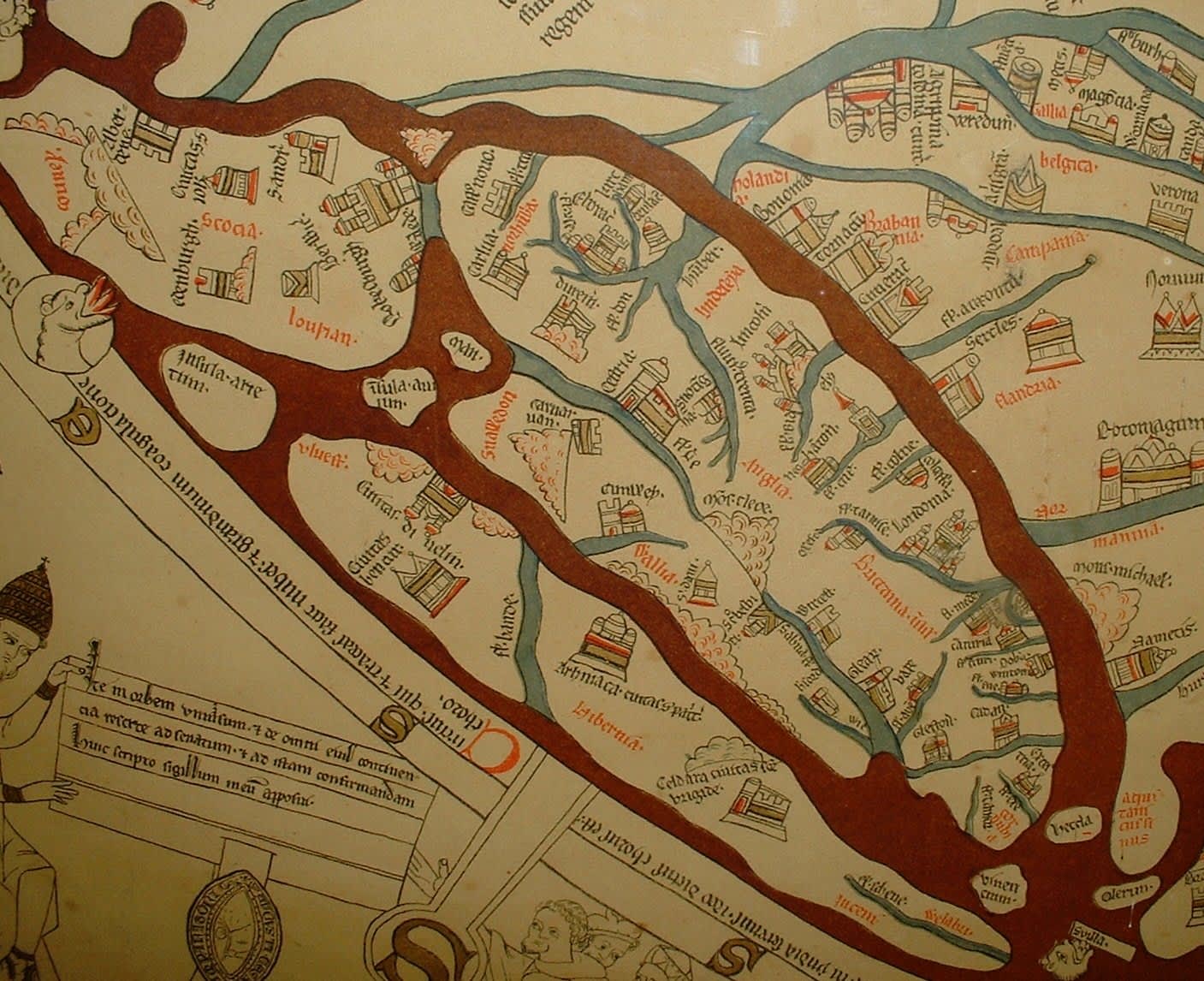
Solinus is the most often cited source on the Hereford World Map.
Seen here: England and Ireland, detail lower left corner (Hereford cathedral).
Solinus describes Britain as:

A cloidem, an ancient, decorated, Irish bronze sword (Dublin, National Museum).
Solinus quotes what he thinks are trustworthy sources, for instance:
"Those who have calculated honestly and truthfully estimate this sea to be spread out to a width of 120 miles.... The island Tanatus [Thanet, the most easterly point of Kent, in early days an island] is blown upon by the Gallic strait, and is separated from the British mainland by a narrow channel. It is blessed with fruitful plains and productive soil. It is not only healthful for its own inhabitants, but also for those of other places."
In another example he states:
"The Orchades [Orkney] provide the second outpost for those journeying. But the Orchades, three in number, are seven days and as many nights further on from the Ebudes [Hebrides]. They are vacant of men, have no forests, and tremble with rushy herbs. Others of them are bare of sand and have cliffs. From the Orchades all the way to Thule [Greenland?], the voyage is five days and nights."
He also notes that "The circumference of Britain is 4875 miles. In this space are many great rivers, and hot springs refined with opulent splendour for the use of mortal men. Minerva is the patroness of these springs [Aquae Sulis, Bath]...".

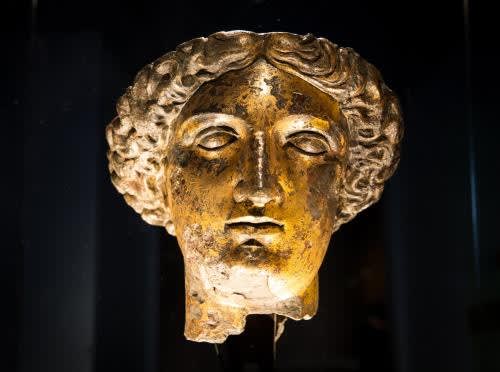
Roman baths or thermae preserved in Bath,
dedicated to the goddess Minerva
He continues, "So I may pass over the plentiful and varied abundance of metals in which the soil of Britain is everywhere strong, I will describe the stone gagates [black mineral]. In Britain there is the most, and the best. If you are curious as to its beauty, it is a black jewel...."
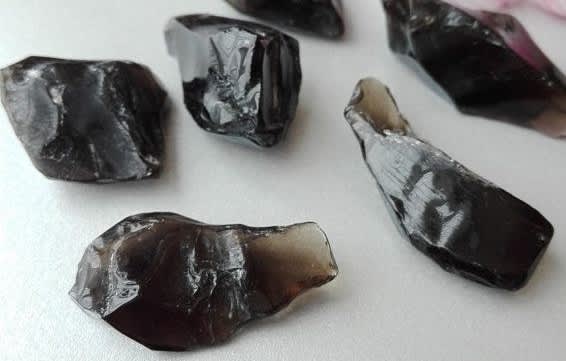
Gagates stones are made of hardened petroleum, naphta or coal tar
Pliny and, in his wake, some alchemists mention that the vapour of burning gagates drives away serpents, but it also arrests dangerous disease, which brings us back to today.
Distance and solitude can make us feel more isolated than ever. In times of vulnerability, we seek comfort and enlightenment in stories of earlier days. We hope that Solinus' tales of faraway places may provide some distraction.
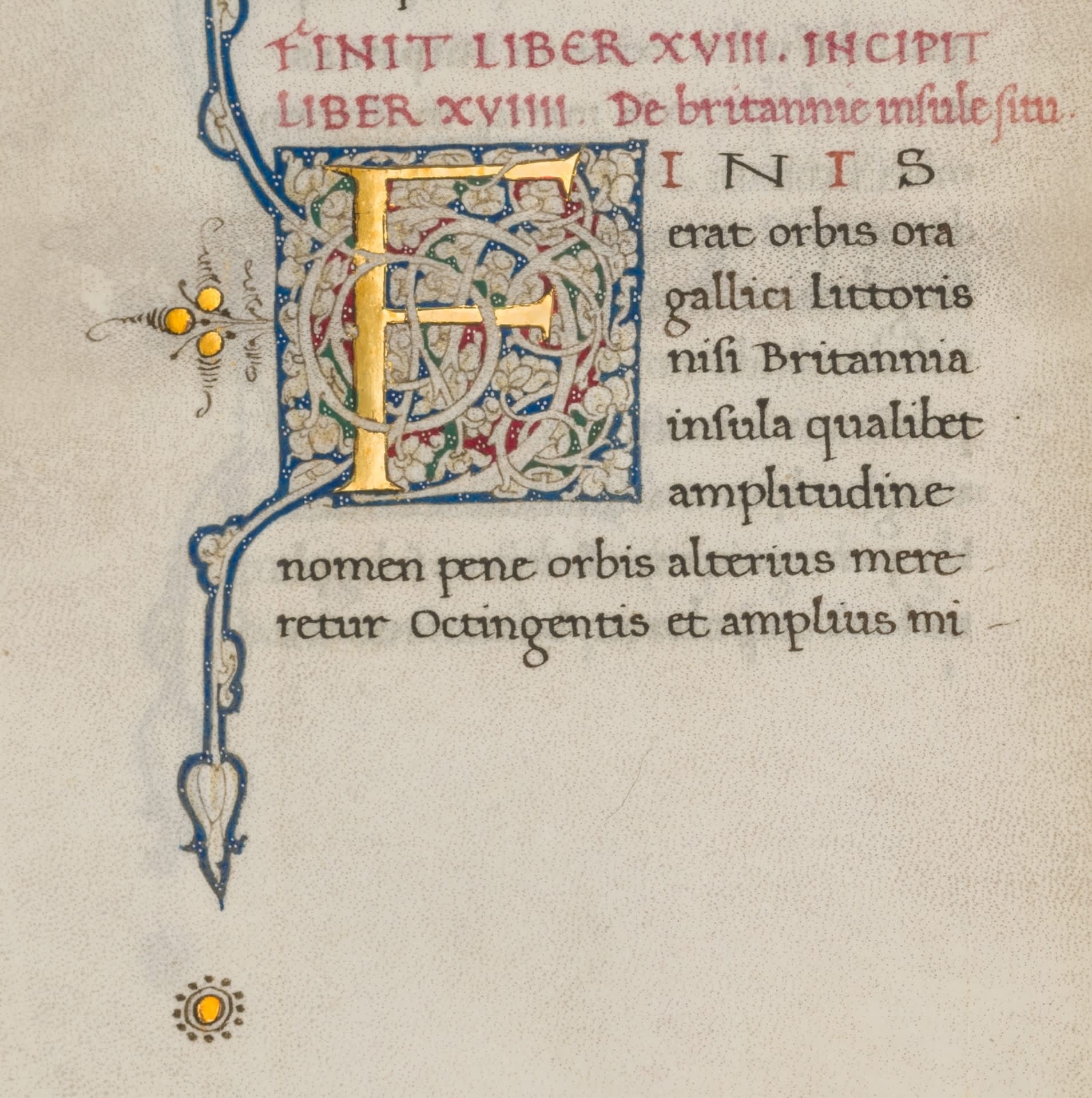
Solinus, Beginning of the description of Britannia in Book 18
However, we must keep in mind that the Romans never conquered all of Britain and never made it to Ireland. In another blog, we offer more on how Rome finally conquered the English through spirituality. Our series of blog posts on Solinus will continue with Felix Arabia.
Also have a look at part I of this series of blog posts.
Also have a look at part I of our series of blog posts on Solinus.
For Solinus in English, see:
https://topostext.org/work/747


